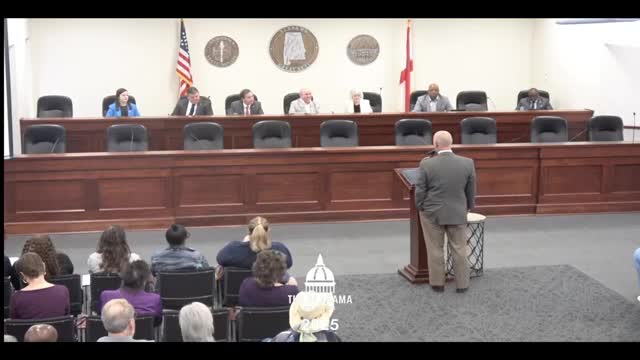Lawmakers press DOC for independent oversight, prosecutions and autopsy access after allegations of misconduct
Get AI-powered insights, summaries, and transcripts
Subscribe
Summary
Committee members pressed the Alabama Department of Corrections for independent oversight of staff misconduct, asked about internal investigations and autopsy access for in-custody deaths, and welcomed recent prosecutions of staff accused of wrongdoing.
Lawmakers on the Joint Interim Committee on Corrections pressed the Alabama Department of Corrections for stronger independent oversight of corrections staff, greater transparency in cases of alleged abuse, and wider access to autopsies for inmates who die in custody.
Representative England and others questioned whether internal investigators can fairly police allegations that involve staff and recommended exploring independent third-party review or whistleblower protections. “If you don't have that ability or they don't have that ability, then you could imagine how that sort of environment fosters corruption,” Representative England said, arguing that purely internal investigations can suppress reporting and allow abuse to continue.
Commissioner Hamm said investigators within DOC can pull video and pursue internal inquiries, and he noted the department has referred many cases for civilian arrests and prosecutions. He told the committee the department had arrested 111 staff members for wrongdoing and highlighted increased enforcement as part of efforts to change culture inside facilities.
Committee members also raised autopsy access for in-custody deaths. Legislators said independent autopsies and clear reporting would improve public confidence and help identify trends such as drug use or abuse. A member of the committee said the Department of Forensic Science currently performs autopsies only when criminal activity is indicated by code, leaving some custody deaths without central forensic review.
Judge Hill and Representative Simpson urged that parole and classification records reflect in-custody programming and behavior so that parole authorities have the best available information. Committee members also discussed the broader cultural problems discussed earlier in public testimony, and several legislators urged more outside scrutiny to protect whistleblowers and separate complainants from alleged abusers during investigations.
Ending: Members said they will continue follow-up on proposals for independent oversight, prosecution transparency and autopsy access as part of broader corrections policy and budget discussions.
